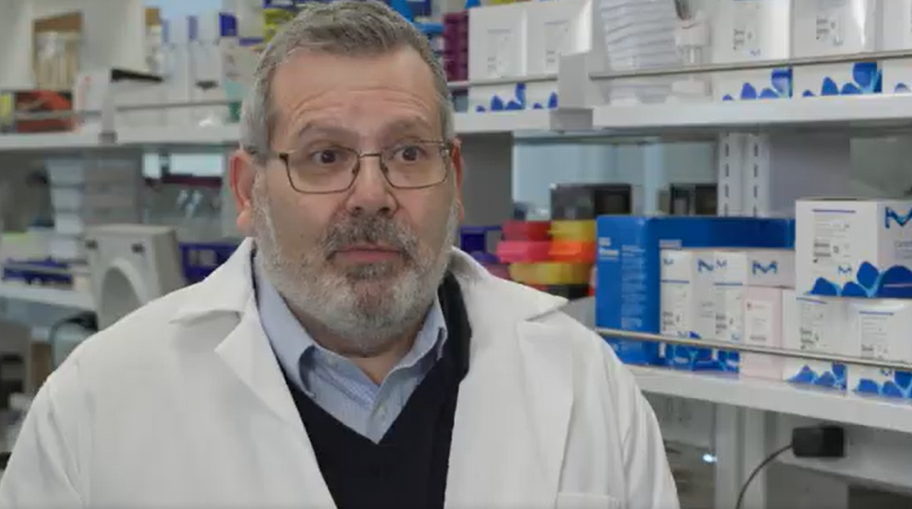
Caption
Philip Santangelo, in his lab at Emory University, is working to cure cancer as part of Emory's Cancer Immunology Research Program at Winship Cancer Institute — and other diseases as well.
Credit: Emory University
LISTEN: Scientists with Emory University will use up $24 million in federal research dollars to look at how regulating the immune system might be used to treat a number of diseases including cancer and autoimmune disorders. GPB’s Ellen Eldridge reports.

Philip Santangelo, in his lab at Emory University, is working to cure cancer as part of Emory's Cancer Immunology Research Program at Winship Cancer Institute — and other diseases as well.
Emory University in Atlanta is now the first recipient of funding through the Advanced Research Projects Agency for Health, a new research agency funded through the bipartisan FY22 appropriations bill that Sen. Jon Ossoff helped pass into law.
"This cancer moonshot is one of the reasons why I ran for president," Biden said during a speech last year at the Kennedy Presidential Library in Boston. "Cancer does not discriminate red and blue. It doesn't care if you're a Republican or a Democrat. Beating cancer is something we can do together."
While Philip Santangelo is working to cure cancer as part of Emory's Cancer Immunology Research Program at Winship Cancer Institute, he said he wanted to build a toolbox that would allow scientists to essentially go after a number of different diseases, including cancer, through the modulation of the immune system.
"When I looked at many of the diseases that are essentially plaguing Americans, there is a common thread, and that's the dysregulation of the immune system," Santangelo said.
His team is looking at a systems approach, where therapies attack tumors by targeting T cells, which help the immune system fight germs and protect against disease, and dendritic cells, which are responsible for the initiation of immune responses.
But Santangelo said there are other diseases where you need to do the exact opposite, such as autoimmune disorders.
"Infectious disease and cancer are actually more similar than one would think," he said. "So cancer is a big part of this. Auto immune diseases are a big part of this. And then infectious diseases, too."
With an autoimmune disease, Santangelo said, the idea is to turn the immune system down — not so much as to suppress the patient's immune system, but to calm its overreaction.
"There are cases like long COVID where we need to do the same thing," he said. "Your immune system is still too revved up. We need to turn it down. And so we want ways to turn it up when we need to, and in a specific manner, but then also turn it down."
Santangelo said his team is working very hard to bring new solutions to people, and he's cognizant of the fact, too, that these drugs can't be incredibly expensive and inaccessible to everyone.
"So we want drugs that everyone has access to," he said. "That's really important in terms of our mission."